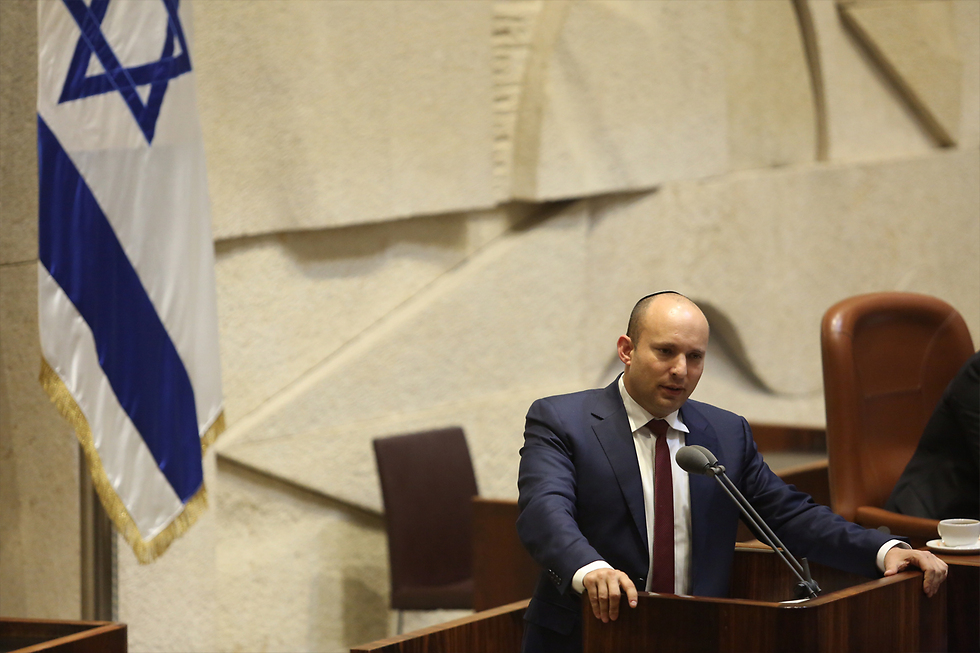Op-ed: The best way to defend students is to keep developing their critical thinking skills and their political instincts so that they won’t believe everything they are told. The government, however, is afraid that citizens will learn how to think in a critical manner, based on facts and evidence.
Lecturers in the academia definitely need an ethical code, but they already have one. And the ethical code of lecturers in the academia is much stricter than the ethical code of politicians and government ministers, for example.
As scientists, our commitment is first and foremost to the truth, to facts and evidence. If the evidence contradicts our personal view, we are committed to present the evidence as is. When we discuss a complicated political issue in class, we are committed to present to the students a variety of theories and opinions, and we are committed to allow the students to respond, to ask questions and to voice different opinions. Even if a student’s political views are different from our own, we must not offend him, mock him, silence him or punish him by lowering his grade.
Do all lecturers always obey these rules? Of course not. Show me one institution in which all members always obey its rules. But is that a reason to forbid lecturers to discuss political issues in their classes? It will be the end of freedom of speech and freedom of research in the academia. For the sake of comparison, government members’ ethical code forbids them to take public funds and put them in their own pockets or to transfer public funds to their associates. Do all ministers always obey this code? Not really. So should we perhaps forbid ministers to made decisions on public funds?

The ethical code suggested by the education minister determines that “a faculty member at an academic unit will beware the possibility that his remarks in class will be naturally interpreted by students as political activity,” and defines political activity as “any activity which includes direct support for a certain stance in a known public controversy, which has been expressed over an extended period of time in the Knesset and in the public discourse.”
Should this code be accepted, I will personally violate it in almost every class, because it’s simply impossible to teach history without talking about “opinions in a known public controversy.” Is it possible to teach a course about the Bar Kochba Revolt, about the Inquisition in the Middle Ages or about the communist revolution in Russia without addressing controversial political issues? After all, we don’t study history to know the dates of ancient battles and to remember the names of kings who died 1,000 years ago. Who cares about that? We study history because it’s relevant to our lives today.
It’s not that a lecturer in a history class stands in front of his students and says to them, “Don’t vote Bibi!” But a lecturer in a history class should not have to be afraid and censor himself when he asks his students, “What ways do rulers use to incite the population against minority groups?” or “how is it possible that when a regular person goes bankrupt, he carries his debts around for life, and when a billionaire goes bankrupt, his debt is written off?”
As a lecturer with tenure and an international reputation, I have almost nothing to be afraid. Even if lecturers are forbidden to discuss political issues in class, I will keep doing it, and if I am fired from the Hebrew University as a result, I believe I will find a different workplace.
A young lecturer without tenure, however, is in a completely different position. When she faces her students in class, she will think 10 times before saying something that could be interpreted as a political statement, lest a student will complain about her to the discipline board and she will gain a reputation of a “troublemaker.” Not only will she be afraid to express an opinion on political issues, but she will avoid teaching courses on “dangerous” issues like the inquisition to begin with. After all, what if a lesson on the persecution of Jews in Spain of the 16th century develops, God forbid, into a discussion of issues that are under “a known public controversy” such as the persecution of minorities, religious fanaticism or censorship?
How does censorship work?
Censorship publicly punishes one person for a radical comment, thereby intimidating thousands of people who avoid making much more moderate comments. And then today’s moderate comment becomes tomorrow’s radical comment.
All this applies not only to the Department of History and not only to the Faculty of Humanities. There is hardly any academic field that doesn’t deal with political issues. Don’t economists deal with views that are under “a known public controversy”?
The ethical code suggested by the education minister determines that “an academic discussion as part of a course on an issue that touches on subjects which include political activity, while presenting the different arguments in a professional and dignified manner, does not harm the students in any way.” That’s all fine and well. Does that mean that every time a professor of economics discusses an economic policy without presenting the arguments of Marxian economists in a professional and dignified manner, she is harming her students and should be reprimanded? Does that mean that every time an professor of agriculture talks about the milk production process, he should devote an appropriate amount of time to a dignified presentation of the vegan opinion, and that if he fails to do so, his students will file a complaint against him with the discipline board? Does that mean that every time a historian teaches the history of the War of Independence, he should present the Palestinians’ claims in a professional and dignified manner, and that if he fails to do so, he will get a black mark on his record?

Some say that the solution is to ensure that the academic departments include lecturers with a variety of political outlooks to being with. Does that mean that the Department of Economics will be forced to reserve positions for Marxists, that the Department of Agriculture will be forced to reserve positions for vegans, and that the Department of History will be forced to reserve positions for Palestinians? Capitalist lecturers must, of course, let a socialist student talk in class, and they must not punish him for it with a low grade. But if it turns out that professors of economics occasionally silence students who voice a socialist opinion in class, should the solution be to forbid professors of economics to discuss economic policies in class?
And what about computer science? In the 21st century, artificial intelligence might be the most important political issue in the world. Will we create fully autonomic weapons, like a remove-piloted vehicle that opens fire on its own? Will employers give an advanced computer software the authority to fire people, just because the computer reached the conclusion that a certain employee is not efficient enough? Will governments collect huge amounts of biometric information on their citizens? Will the Facebook and Google algorithms shape our political discourse? And do we want to forbid professors of computer science to voice their opinions on these issues?
The elephant in the room
And there is of course the elephant in the room. It isn’t hard to predict that the ethical code advanced by the education minister won’t be used to regiment capitalist lecturers at the Department of Economics, lecturers from the Department of Agriculture who love their steak, or historians who teach the 1948 war without presenting the Palestinians’ claims in a “professional and dignified manner.” The code will likely be used, almost exclusively, to punish lecturers who dare criticize the government. And that is the most serious problem. Under the guise of an impartial ethical code, they are basically creating a tool for political persecution of the government’s opponents.
Those who seek to impose an ethical code on the academia on behalf of the government are acting all innocent and claiming that they simply want every academic institution to “defend its students against political activity.” But students know how to defend themselves, as we saw in the case of the female students who have led battles against sexual harassment in academic institutions in recent years.
Students are not small children. Children usually lack critical thinking skills, and when a Bible teacher tells a 10-year-old boy that God created the world in six days, the child has trouble addressing it in a critical manner. On the other hand, 25-year-old students don’t believe everything their lecturer tells them. Does the education minister think that after 12 years of studying in the Israeli educational system, students are incapable of thinking in a critical manner? The best way to defend students is to keep developing their critical thinking skills and their political instincts so that they won’t believe everything they are told by a person of authority—and that is precisely what we are trying to teach students in the academia.
That is exactly why the government is so afraid of the academia. The government is afraid that citizens will learn how to think in a critical manner, and it is even more afraid that citizens will learn to think based on facts. Politicians like to engage in a simplistic political debate based on slogans and propaganda. In the academia, on the other hand, students are taught how to conduct a complex political debate based on a wide variety of facts and evidence. Want to present a political stance? Go ahead, but this is the academia, so bring us some kind of evidence supporting your stance.
You say that cutting taxes for the rich benefits the poor? Okay, bring us some evidence. You say that Israel committed war crimes in Gaza? Bring evidence. You say that the global warming claims are actually a Chinese scheme against the US economy? Bring evidence. Anything can be discussed, as long as the discussion is based on evidence.
Fine political debates in the academia teach students how to conduct a political debate based on evidence rather than on wishful thinking, and how to distinguish between propaganda and the truth. Is that the real reason for the education minister’s objection to political debates in the academia? Is it possible that he is afraid of the truth? My suggestion is that all lecturers in Israel, whether in the Department of Philosophy or in the Department of Computer Science, devote their next class to a short discussion of politics.
As reported by Ynetnews
